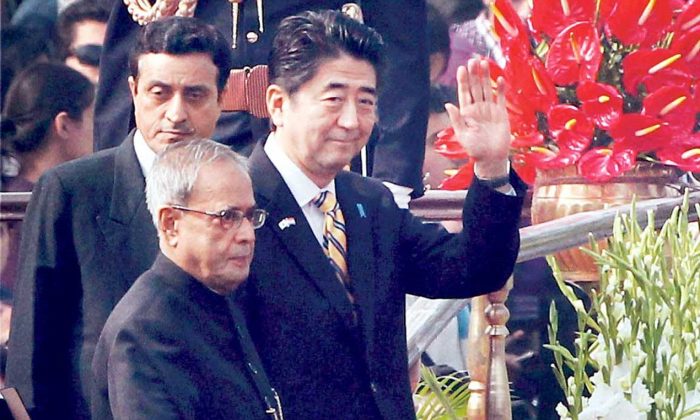Published in the Nikkei Asian Review June 11th 2014
Japanese Prime Minister Shinzo Abe must pinch himself sometimes to prove he isn’t dreaming. The series of successes he has racked up since taking office are surely beyond his greatest hopes.
His first year in office saw the strongest rise in the Japanese stock market in forty years, the end to a decade and a half of deflation and – probably dearest to his heart – growing acceptance at home and abroad of a greater Japanese security role in the region.
Being an astute politician, Mr. Abe would probably claim responsibility for all these achievements, but much of the credit for the third must go to Beijing. Own goals by the Chinese leadership have handed Abe’s Japan a series of easy wins.
The hard line that China has taken on territorial disputes and the harsh rhetoric deployed to defend its own position have had the wholly predictable effect of antagonizing and scaring its neighbours, strengthening the US-Japan alliance and encouraging several South East Asian countries to welcome a balancing presence in the region.
It’s no mean feat to provoke the foreign minister of the Philippines – which suffered terrible atrocities at the hands of Japanese troops in the second world war – into calling for Japanese remilitarization. Or to cause officials of the most dove-ish US administration in decades to commit to defending a few barren rocks claimed by both Japan and China on the other side of the Pacific. Or to induce a marked warming of relations and military exchanges between Japan and India, two countries that have limited economic ties and synergies.
The erosion of China’s soft power is apparent from recent findings by the Pew Research Institute. In the Asia-Pacific region as a whole, the proportion of the public with a favourable opinion of China is declining and well below the proportion favourable to the US. The differential is especially marked in in South Korea, India and the Philippines. In Japan China’s “favourable” rating has plunged from 55% in 2002 to an extraordinary 5%. The once formidable lobby of pro-China businessmen and officials has gone silent.
Countries with little in common are coming together in what could develop into a de facto regional alliance. Large and powerful though China is, it would be outmatched by a grouping that included India, Japan and the United States.
It all seemed so different in the aftermath of the global financial crisis of 2008. While the rich countries of the West were mired in stagnation, China mesmerized the world by churning out growth rates of nine and ten percent with apparently effortless ease. Its voracious demand for commodities and luxury goods was a godsend to retailers in Paris and mining companies in Australia and entire countries in Africa and Latin America.
Geopolitical trends were moving in the same direction. America’s global reputation had taken a battering from the military adventurism of the Bush years. The election of Barak Obama seemed to signal a shift to a more modest and multilateral foreign policy. Meanwhile Japan’s slide into irrelevance seemed unstoppable. In 2009 the Democratic Party of Japan – which favoured friendly ties with Asian neighbours over the military alliance with the US – won a landslide victory
In terms of economic ideology, the Washington Consensus, the mix of market liberalization and democratic institutions promulgated by the IMF, the World Bank and the US State Department, had been discredited by the crisis. Now all the talk was of the Beijing Consensus, a pragmatic authoritarianism centred on investment-led growth directed by the state. China, it appeared, was well on the way to forging a new global order, as Martin Jacques predicted in his 2009 best-seller When China Rules the World.
If China had stuck to the Deng Xiao Ping doctrine of keeping a low profile and concentrating on getting rich, the Jacques scenario would have eventually come to pass. Even the US and Japan would likely have obeyed the “follow the money” principle and cuddled up to the possessor of the world’s largest and fastest growing consumer market. So why did China not simply wait another decade before flexing its geopolitical muscles? There are a number of possible explanations.
First China is now a major importer of energy for the only time in its history. In seeking to project power overseas it is merely following in the example of other great powers in protecting vital supply chains. Secondly the leadership may be stoking the fires of nationalism as a channel for energies that might otherwise fuel instability at home. As the crackdown around the 25th anniversary of the Tienanmen Square incident shows, the Chinese communist party is far from solving its own “history problem.” Lastly China’s leadership is not monolithic. It has its own version of America’s military-industrial complex which may not have welcomed a continuation of Deng-style pragmatism.
Countries do not always act in their own best interests, as historian Barbara Tuchman established in The March of Folly, which examines policy blunders from the fall of Troy to the American debacle in Vietnam. If China were to contribute a new example, it would be tragic for the region and possibly the world, as well as for the Chinese people themselves.
